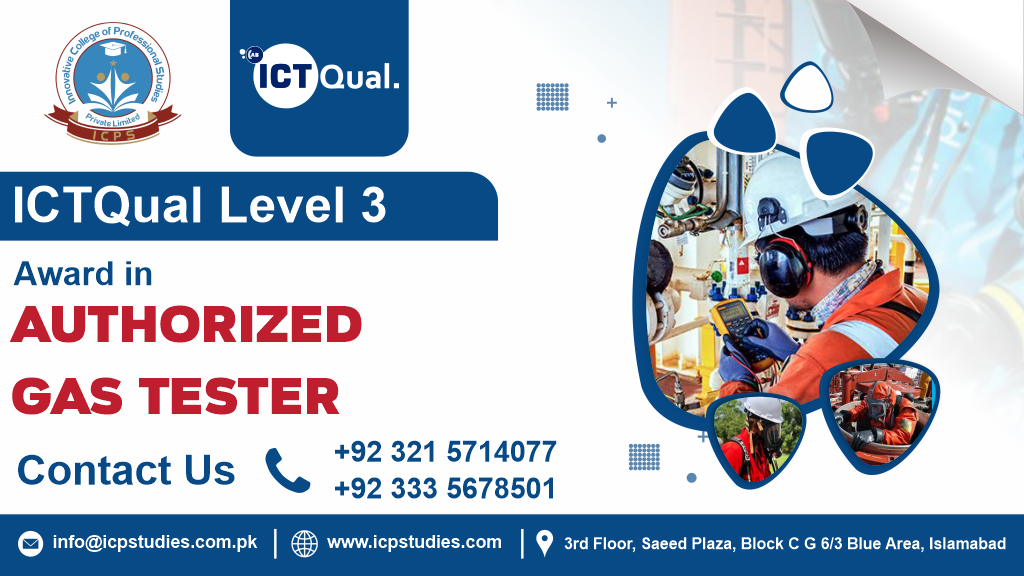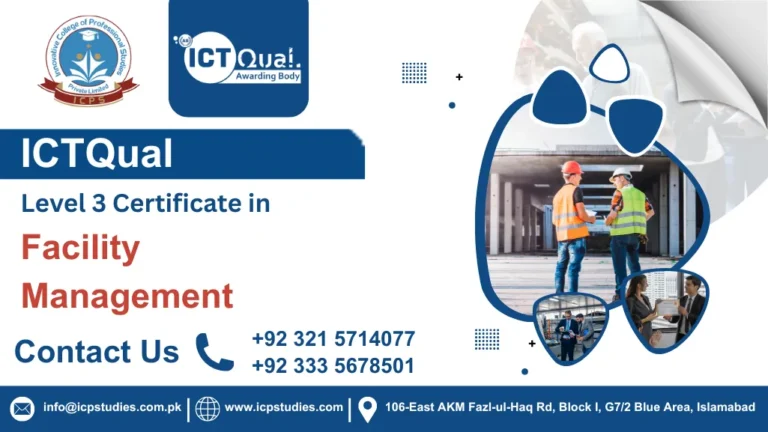In industries where gas is a critical component—such as construction, manufacturing, and energy—ensuring that environments are safe and compliant with regulations is paramount. The Level 3 Award in Authorized Gas Tester is a specialized qualification designed to equip professionals with the knowledge and skills necessary to manage and test for hazardous gases effectively. This award is vital for maintaining safety standards and ensuring that workplaces meet legal requirements. Here’s an in-depth look at what this qualification entails and why it’s crucial.
The Level 3 Award in Authorized Gas Tester is an advanced vocational qualification aimed at providing comprehensive training in gas testing and safety management. This qualification is essential for individuals who are responsible for testing, monitoring, and managing the risks associated with hazardous gases in the workplace. The course covers a range of topics including gas detection, risk assessment, and safety protocols to ensure environments are safe for work.
The Level 3 Award in Authorized Gas Tester is more than just a qualification; it’s a crucial certification for ensuring safety and compliance in environments where hazardous gases are a risk. By providing in-depth training in gas detection, risk assessment, and safety protocols, this award prepares professionals to handle gas-related hazards effectively and responsibly. Whether you’re looking to advance in your current role or pursue new career opportunities, the Level 3 Award in Authorized Gas Tester is a valuable investment in your professional development and safety expertise.
All About ICTQual Level 3 Award in Authorized Gas Tester
Course Overview
The Level 3 Award in Authorized Gas Tester is a specialized vocational qualification designed to provide individuals with the knowledge and skills required to safely test and manage gas-related hazards in various work environments. This qualification is crucial for ensuring that workplaces are safe and compliant with regulatory standards regarding hazardous gases.
Level 3 Award in Authorized Gas Tester is a crucial certification for professionals who need to manage and test for hazardous gases effectively. It provides essential knowledge and practical skills to ensure safety and compliance in environments where gas hazards are present.
Study Units
- Introduction to Gas Testing
- Legislation and Standards
- Gas Detection Instruments
- Gas Testing Procedures
- Interpreting Gas Readings
- Risk Assessment and Hazard Control
- Emergency Procedures
- Reporting and Documentation
- Safety Management Systems
To enroll in the ICTQual Level 3 Award in Authorized Gas Tester, participants typically need to meet the following requirements:
- Age Requirement: Participants should be at least 18 years old.
- Basic Literacy and Numeracy: A good understanding of English is essential for completing the course materials and assessments.
- Relevant Experience: Prior experience in working with gas systems or in a related field is beneficial.
- Medical Fitness: Participants may need to provide evidence of medical fitness to work in environments where gas testing is conducted.
- Course Registration: Participants must register for the course through an accredited training provider.
- Payment: Course fees must be paid as required by the training provider.
- Commitment to Attend: Participants should be prepared to attend the full duration of the course and complete any required assessments to receive certification.
Always check with the specific training provider for any additional or varying requirements.
4o mini
The ICTQual Level 3 Award in Authorized Gas Tester is designed for:
- Gas Testers: Individuals responsible for conducting gas testing in various environments, including industrial and construction settings.
- Health and Safety Professionals: Those overseeing compliance and safety measures related to gas use in workplaces.
- Maintenance Personnel: Workers involved in the maintenance and servicing of equipment that requires gas testing.
- Site Supervisors and Managers: Individuals responsible for ensuring safe working practices and compliance with gas safety regulations on-site.
- Emergency Responders: Personnel who may encounter gas hazards in their roles and need to ensure safety measures are in place.
- Anyone Involved in Confined Space Work: Individuals working in confined spaces where gas testing is essential for safety.
Learning Outcome
. Introduction to Gas Testing
Learning Outcomes:
- Understand Gas Testing Basics: Explain the fundamental concepts and importance of gas testing in maintaining safety in various work environments.
- Identify Types of Gases: Recognize different types of hazardous gases and their potential risks to health and safety.
- Describe the Role of an Authorized Gas Tester: Outline the responsibilities and duties of an authorized gas tester in ensuring safe working conditions.
2. Legislation and Standards
Learning Outcomes:
- Familiarize with Regulations: Understand relevant legal and regulatory frameworks that govern gas testing and safety.
- Apply Standards: Explain and apply industry standards and best practices related to gas testing and management.
- Ensure Compliance: Demonstrate how to ensure compliance with applicable laws and standards to maintain safety and avoid legal issues.
3. Gas Detection Instruments
Learning Outcomes:
- Identify Detection Equipment: Describe various types of gas detection instruments and their functions.
- Operate Instruments: Demonstrate proficiency in using gas detection devices, including calibration, maintenance, and operation.
- Interpret Instrument Data: Understand how to interpret data provided by gas detection instruments to assess gas levels accurately.
4. Gas Testing Procedures
Learning Outcomes:
- Follow Testing Procedures: Explain and execute standard procedures for conducting gas tests in different environments.
- Prepare for Testing: Prepare and set up equipment for gas testing, including ensuring that all instruments are functioning correctly.
- Conduct Testing: Perform gas tests according to established protocols, ensuring accurate and reliable results.
5. Interpreting Gas Readings
Learning Outcomes:
- Analyze Readings: Interpret gas readings from detection instruments to identify concentrations of hazardous gases.
- Determine Safety Levels: Assess whether the gas levels are within safe limits or if action is required based on the readings.
- Make Informed Decisions: Use gas readings to make informed decisions about safety measures and corrective actions.
6. Risk Assessment and Hazard Control
Learning Outcomes:
- Conduct Risk Assessments: Perform thorough risk assessments to identify potential gas hazards and evaluate associated risks.
- Implement Control Measures: Develop and implement effective hazard control measures to mitigate risks related to gas exposure.
- Monitor and Review: Continuously monitor and review risk controls to ensure their effectiveness and make necessary adjustments.
7. Emergency Procedures
Learning Outcomes:
- Understand Emergency Protocols: Describe emergency procedures for responding to gas-related incidents, including evacuation and containment measures.
- Execute Emergency Plans: Implement emergency response plans effectively to manage gas leaks or exposure incidents.
- Provide First Aid: Demonstrate knowledge of first aid procedures for dealing with gas exposure and related health effects.
8. Reporting and Documentation
Learning Outcomes:
- Document Test Results: Accurately document gas testing results, observations, and any anomalies detected during testing.
- Prepare Reports: Create comprehensive reports detailing testing procedures, findings, and recommendations.
- Maintain Records: Ensure proper record-keeping for compliance, reference, and auditing purposes.
9. Safety Management Systems
Learning Outcomes:
- Understand Safety Systems: Explain the principles and components of safety management systems related to gas testing and safety.
- Integrate Safety Measures: Integrate safety management practices into daily operations to enhance overall workplace safety.
- Evaluate Safety Performance: Assess the effectiveness of safety management systems and make improvements as necessary.
These learning outcomes ensure that candidates not only acquire theoretical knowledge but also develop practical skills essential for effectively performing their roles as authorized gas testers. The comprehensive training provided through these study units equips professionals to manage gas-related hazards safely, ensuring compliance and enhancing workplace safety.
FAQs about ICTQual Level 3 Award in Authorized Gas Tester







